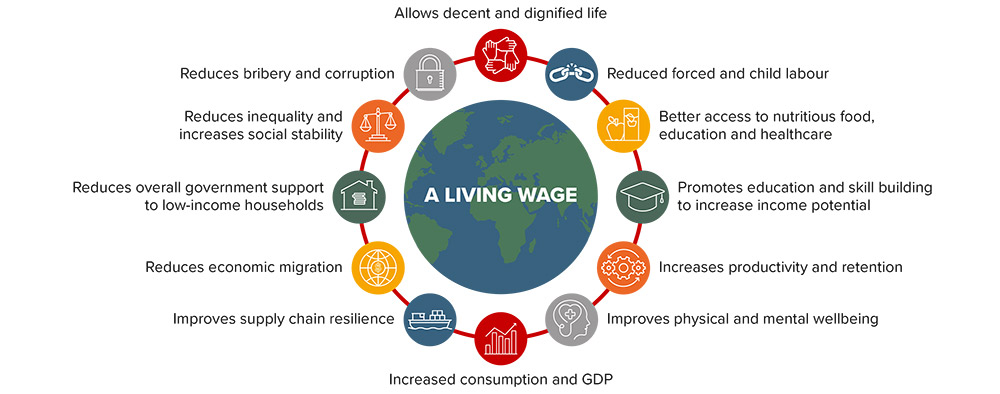Policy and insights report
This research by ACCA, Shift and Forvis Mazars looks at paying workers wages that give them a decent standard of living. Are Living Wages adequately addressed when thinking about sustainability considerations?

Of finance professionals worldwide, 89% recognise the importance of paying a living wage, but only 53% see it as their responsibility to ensure their organisations implement it. This striking disparity is the central finding of this latest report, A living wage: crucial for sustainability.
This report highlights the urgent need for the finance and accountancy profession to lead the charge in addressing wage inequality, a critical factor in reducing global inequality, improving human rights and fostering sustainability.
Key messages from this report
- Ethics and human rights are the main reasons why a living wage is important. Not paying a living wage should be regarded as an abuse of human rights, not dissimilar to modern slavery and child labour.
- A business that cannot afford to pay a living wage does not have a sustainable business model. Business models with low margins that need to pay below a living wage in order to be viable need to be critically redesigned on the basis of value.
- Living wage has the potential to act as a major socio-economic multiplier. It provides benefits across the eco-system – workers, employers, economy and governments.
- While 86% of respondents feel their organisation should pay a living wage to its own employees, only 34% believe their organisation should be responsible for encouraging their Tier 1 suppliers to do so.
- From a measurement and reporting perspective, finance and accountancy professionals should stay abreast of developments in sustainability reporting that focus on living wages and human capital. New approaches need to be explored by the profession for how it reports the value of people in corporate reporting.
Comment made by several roundtable participants: 'If a business is no longer viable simply from paying a living wage, then it does not have a sustainable business model’.
Expert commentary
'The right of all employees and contractors to a living wage is an ethical responsibility, and finance professionals have a unique role and opportunity to drive it as a core part of their sustainability activities.'
Helen Brand OBE, chief executive, ACCA
‘A living wage is a fundamental human right. Organisations’ responsibility under international standards to respect human rights means paying workers in their own organisation adequately and using their purchasing practices and business relationships to advance living wages also for workers in their value chains. Change doesn’t happen overnight, but chief financial officers can and should drive demonstrable progress on this crucial issue.'
Caroline Rees, president and co-founder, Shift
'The inability to pay a living wage throughout a value chain questions the sustainability of a business model. This is the time to critically appraise and make necessary changes with a focus on human capital.'
Richard Karmel, managing partner – London, Forvis Mazars
Role of finance leaders in implementing a living wage
Finance leaders play a crucial role in driving living wage adoption by assessing and addressing wage gaps, integrating living wage practices into financial planning, and embedding them into sustainability strategies.
They must act now, driving ethical change across their organisations and supply chains, aligning with emerging reporting standards, and making wage equality a cornerstone of long-term business sustainability and resilience. The future of fair business practices starts with their leadership – they need to make the commitment today.
Calls to Action
The report offers several calls to action on various stakeholder groups and asks finance professionals to use their influence accordingly.
Access the call to action here.
Access the survey data here.
Policy and insights report
"The right of all employees and contractors to a living wage is an ethical responsibility, and finance professionals have a unique role and opportunity to drive it as a core part of their sustainability activities."
Helen Brand OBE, Chief Executive of ACCA




